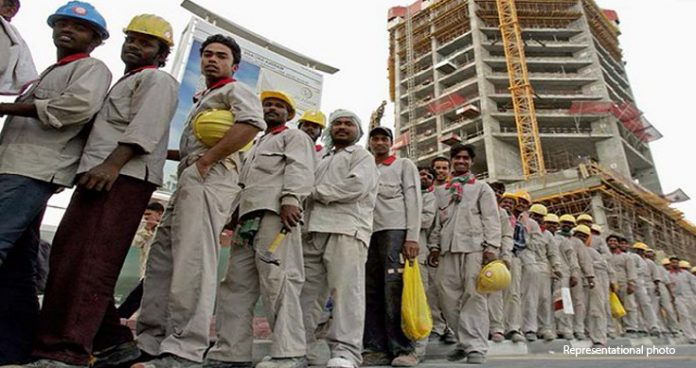In a move applauded by many economists, Saudi Arabia has erased many restrictions put in place for expatriates. These restrictions were highly criticized as they led to the workers’ abuse. The reformation intends to invite a good batch of professionals from around the world into the Gulf country while also opening employment opportunities for Saudi citizens.
With these brought forward, expatriates working in Saudi Arabia will not require the permission of their employer in order to quit their existing job for shifting to another, travel out of Saudi, or exit it permanently. The announcement, which came as a relief for many non-Saudis, was given by a deputy minister of the Ministry of Human Resources and Social Development, Alharbi, on Wednesday.
In his interview, he also stated that the restriction which allowed employers to file cases against their “runaway” employees, typically terming those who do not show up to their jobs as escapees from a bounded agreement, will now be ended. Space is going to be taken up by a lawful process, enabling them to end their contract with the employers.
These changes are due to come into effect beginning March 14th and will be applicable to all foreign national labor working in the private sector, irrespective of the payment they receive, Alharbi added.
The reformation could completely change the lives of the 10.5 million expatriates who form nearly a third of the population of Saudi Arabia.
The sponsorship program or more commonly known as the “kafala” has been running for decades now. However, it was often slammed by human rights activists because the system was majorly abused. Under this, the employers took the labor of the workers as chained slavery. Many economists also consider this to be a tactic used by the private sector companies for hiring foreign workers with a cheaper pay slip along with the benefit of exploiting them easily. These private business houses did not employ the citizens as they couldn’t abuse them for obvious reasons.
Hence, even as the graph of unemployment within the citizens kept seeing a rise, private companies chose to attract foreigners. People from India, Pakistan and Egypt form the majority of the employees who work here to earn more than what they were in their home country.
Speaking about the government’s 2 year-long work on these changes, Alharbi said, “These changes are not small changes — it’s huge. We aim to achieve more inclusion for Saudis, attract talent, improve the working conditions, make Saudi Arabia’s labor market more dynamic and productive.”
The private sector is mostly dominated by foreign workers and they are bound to the sponsor of their visa without whose permission they can neither change their jobs nor go abroad for a vacation. They needed their employer’s permission for even as small a task as replacing a lost ID card.
Due to this reason, many Saudis tend to do government jobs as these not only offer better pay but also provide a range of other benefits when compared to a private company job.
With the new set of rules, although the foreign workers will need to pay a specific amount for an “exit and re-entry” type of visa for leaving the country, they no longer need the permission or the consent of their employer. This will be offered by putting up a request individually to the government directly with its “Absher” system. The same can also be used to transfer their sponsorship from their current employer to another, implying that they do not require their permission to even change their jobs.
The labor mobility will allow workers to get better wages along with a better work environment as the private companies will be forced to do so for retaining their workers or hiring new ones, according to Farouk Soussa, an economist at Goldman Sachs Group Inc.
With the unemployment rate pushed to an all-time high of 15.4% due to the pandemic, it had become exceedingly important for a reformative policy.
“Reducing labor market rigidities will likely prove useful as the economy recovers from the dual shock of low oil prices and Covid-19,” said Carla Slim, an economist at Standard Chartered Bank.
However, this new change will still not be valid for 3.7 million domestic workers of the Kingdom even though they are the most at risk for abuse. Alharbi said a different set of regulations formulated for these type of workers are currently in the review phase.
While the kafala system has been modified by many countries, the complete abolition hasn’t taken place yet.
The transformation and changes can help in fulfilling the “Vision 2030” of the Prince of Saudi who aims to attract the talent who if not goes to Singapore and other countries.
As the foreign workers tend to occupy the jobs of blue-collar like pumping gas at stations, restaurant waiters, street cleaners, etc., enhancing the working conditions becomes a topic of nationalism and xenophobia or racism. On the other hand, some Saudi citizens complain that these non-Saudis snatch the jobs that they could otherwise do.
However, many human rights activists say that this is still not the abolition of the abusive system and many are at stake.


